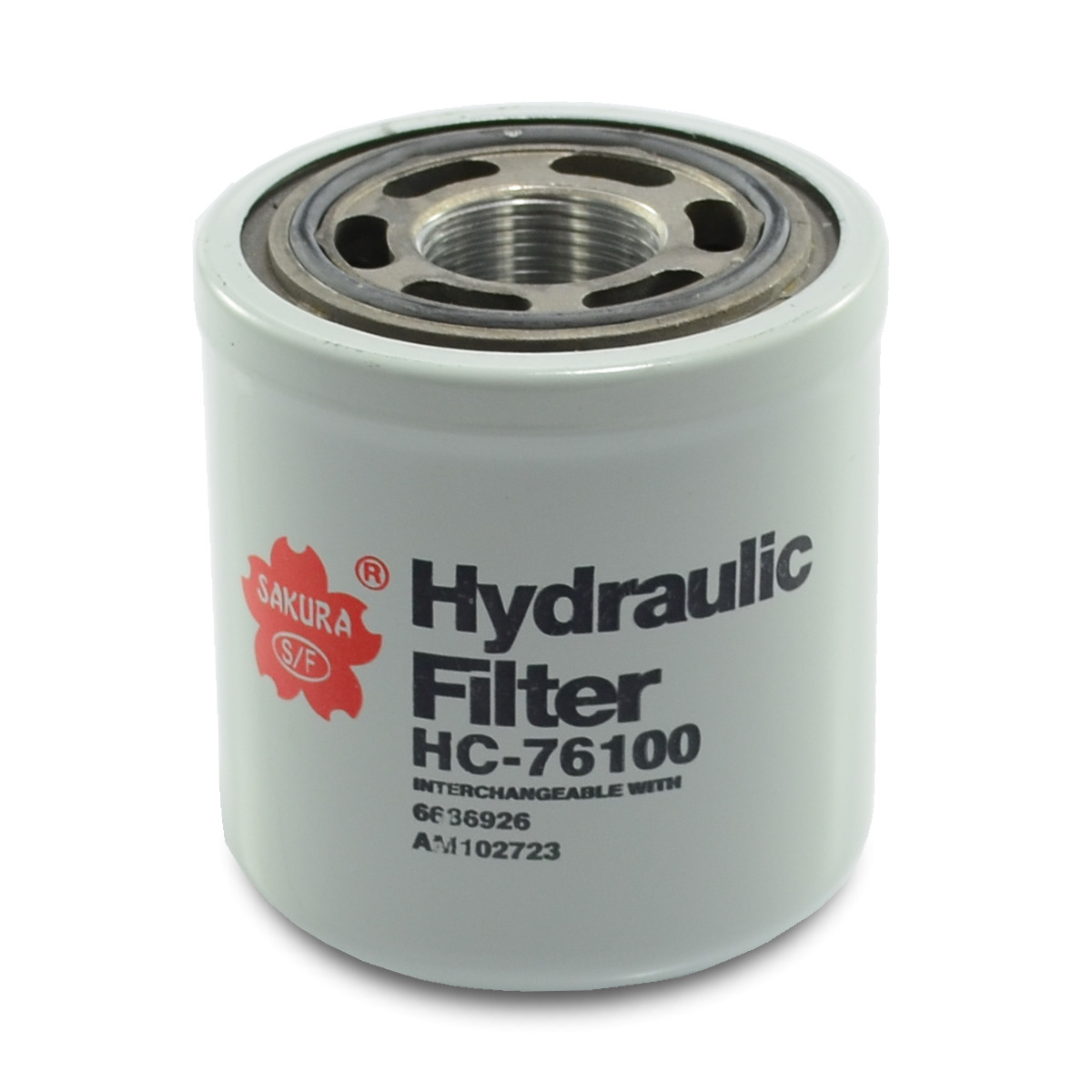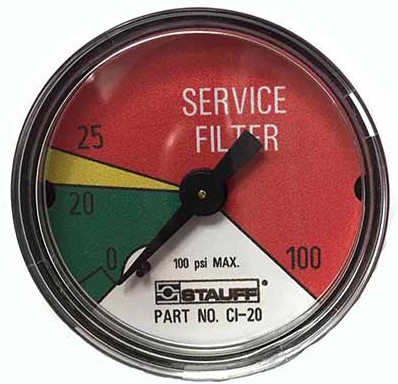The Importance of Changing Hydraulic Filters
Hydraulic filters aid in trapping dirt, dust and other unwanted particles in hydraulic machinery. This filtration ensures that contaminants are kept out of the fluids, airways and cavities. In the ACES Workshop, we have found the that number one cause for hydraulic system breakdowns is due to contamination. Having a neglected filter in your machine, can be worse than having no filter at all!

When a hydraulic filter clogs, fluid cannot pass freely through, creating a pressure drop in your machine. If the pressure drops so low, and the filter has a bypass valve; fluid will bypass the filter entirely and introduce new contaminants to the system. If there is no bypass valve set up on your filter, the filter element will collapse, and all contaminants will enter the system in any case. If a filter was not to collapse, it would cause cavitation quickly damaging the hydraulic pump before catastrophic failure.
A contaminated hydraulic system will firstly cost you a lot of money. The downtime associated whilst investigating the failure delays productivity, damaged machinery parts such as pumps or motors will need repairing (or replacing), hydraulic fluids will need to be flushed and then re-filled with brand new fluid, hydraulic hoses will need to be blown out, new filters installed… all when you could have just changed that hydraulic filter to begin with, at a fraction of the cost!
It is far more economical and practical to establish a routine preventative maintenance schedule for changing your hydraulic filters. Regular changing of the filter solves the problem of having a clogged filter to begin with! This will enable your machine to run at maximum efficiency, promoting cleanliness of your hydraulic system, retaining its value and stay in service longer.
Which leads us to the ultimate question, when is the right time to change your filter? Some say this is according to the manufacture’s recommendations, and usually then proceeds to give you a time in operating hours. The drawback to this approach is that the filters may or may not need to be changed, just because you’ve had, say 15 hours clocked already. The filter might not require changing yet, and you have just wasted some of its useful filter life. Or it may be well over due and already clogged, thus allowing contaminants into the system. In some cases, it is better getting advice from a hydraulic machinery repairer as their own experience with the equipment sometimes proves useful to develop a schedule for changing the filters that makes better use of overall filter life.

Another way to know when to change filters; is using a hydraulic filter clogging indicator. This measures the pressure drop across the filter, and once it reaches a critical low pressure, will reveal that a filter change is required as well as impending failures down the track. This approach can be very useful, however requires constant monitoring, upfront investment in the actual indicator itself, a reliable data logging system, and a technician who knows just how to extract the information from that data.
In summary, it is best to consult both the manufacturer and service technicians to best work out a routine preventative maintenance schedule of your hydraulic system.
